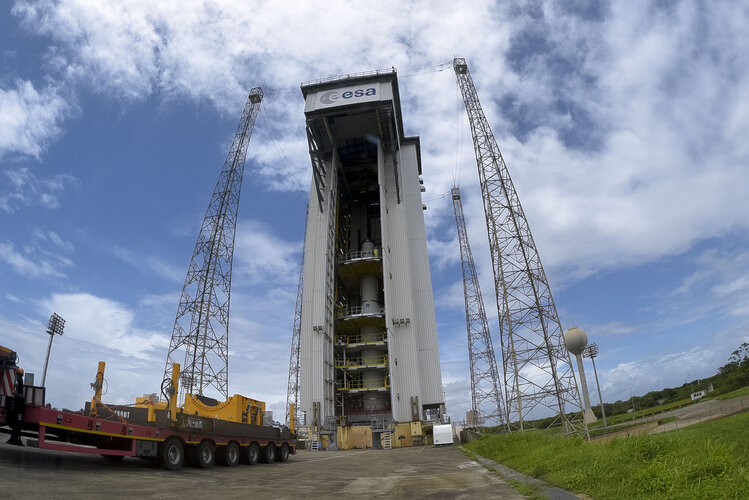Zefiro-9 (the Vega-C third stage) is now in place on the Vega launch pad at Europe's Spaceport in French Guiana; work was carried out on 10 May 2022.
The third stage is shared with the original Vega, but for the more capable Vega-C it sits atop all-new P120C and Zefiro-40 solid-fuel stages. AVIO is the prime contractor for Vega and Vega-C development.
Next to come will be Vega-C’s fourth stage. AVUM+, which is an uprated version of Vega’s AVUM fourth stage. Its liquid-fuel engine is re-startable several times in space, which means a Vega-C flight can orbit multiple payloads to different orbits. And, after dispensing its payloads, a final AVUM+ burn will de-orbit the stage to minimize space debris.
P120C will also fly on Ariane 6, with two or four units serving as boosters depending on mission requirements. By sharing a common component, both launchers will optimise manufacturing and assembly costs.
For flight VV21, the principal payload will be LARES-2, a scientific mission of the Italian Space Agency (ASI). Also onboard will be six European research CubeSats.
Following Vega’s success, Member States at the ESA Ministerial meeting in December 2014 agreed to develop the more powerful Vega-C to respond to an evolving market and long-term institutional needs.
Vega-C increases performance from Vega’s 1.5 t to about 2.2 t in a reference 700 km polar orbit and increases the available payload volume, covering identified European institutional users’ mission needs with no increase in launch service and operating costs.
The participating states in this development are Austria, Belgium, the Czech Republic, France, Germany, Ireland, Italy, the Netherlands, Norway, Romania, Spain, Sweden and Switzerland.



